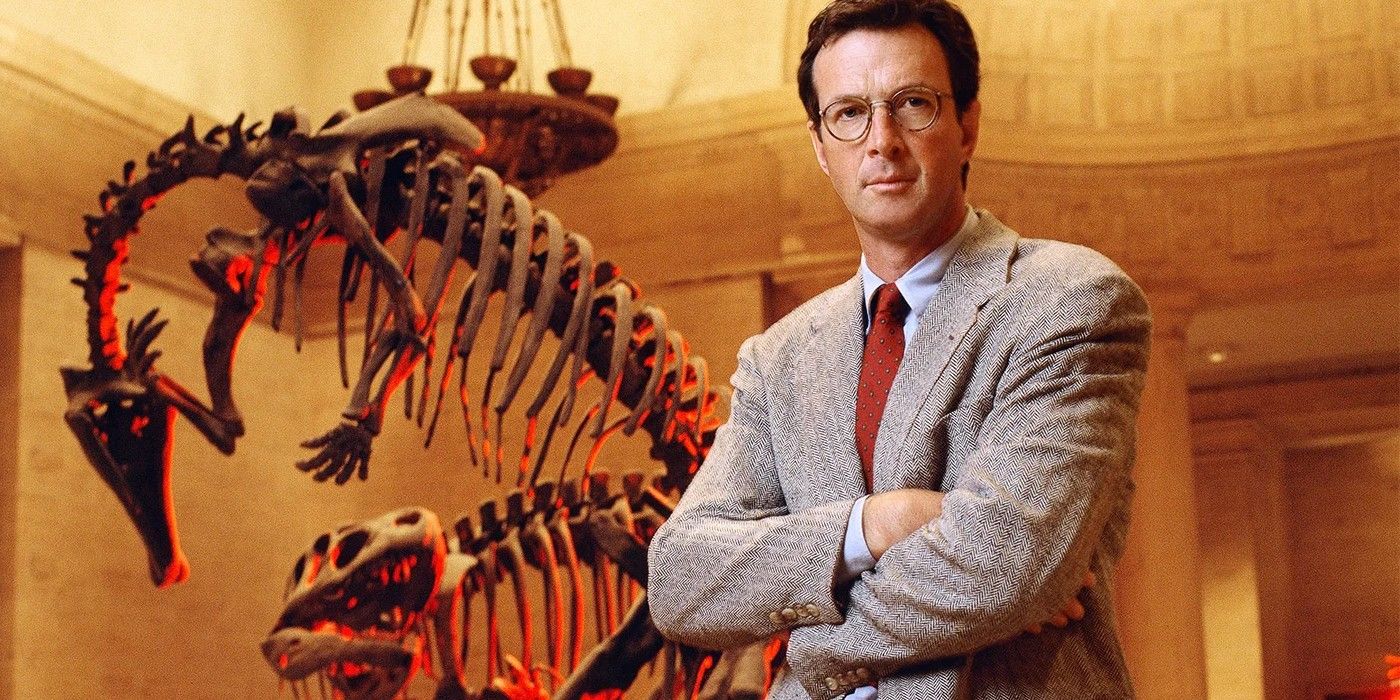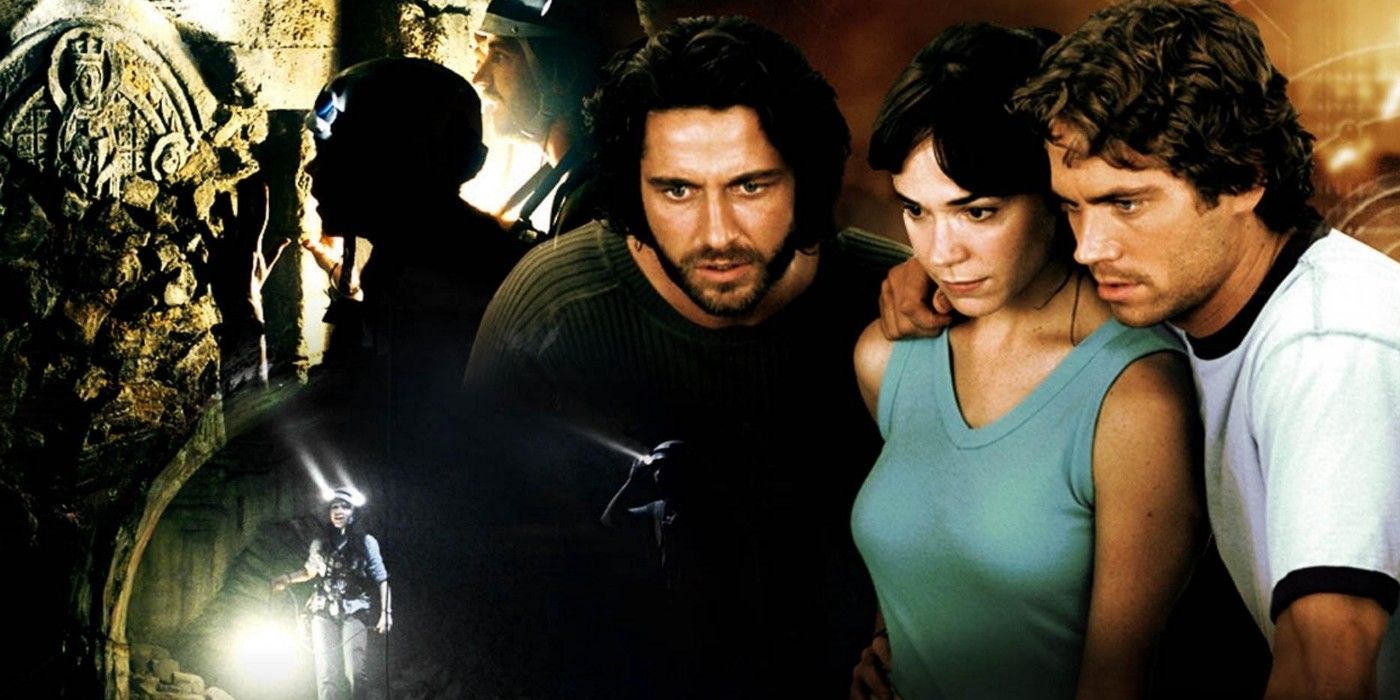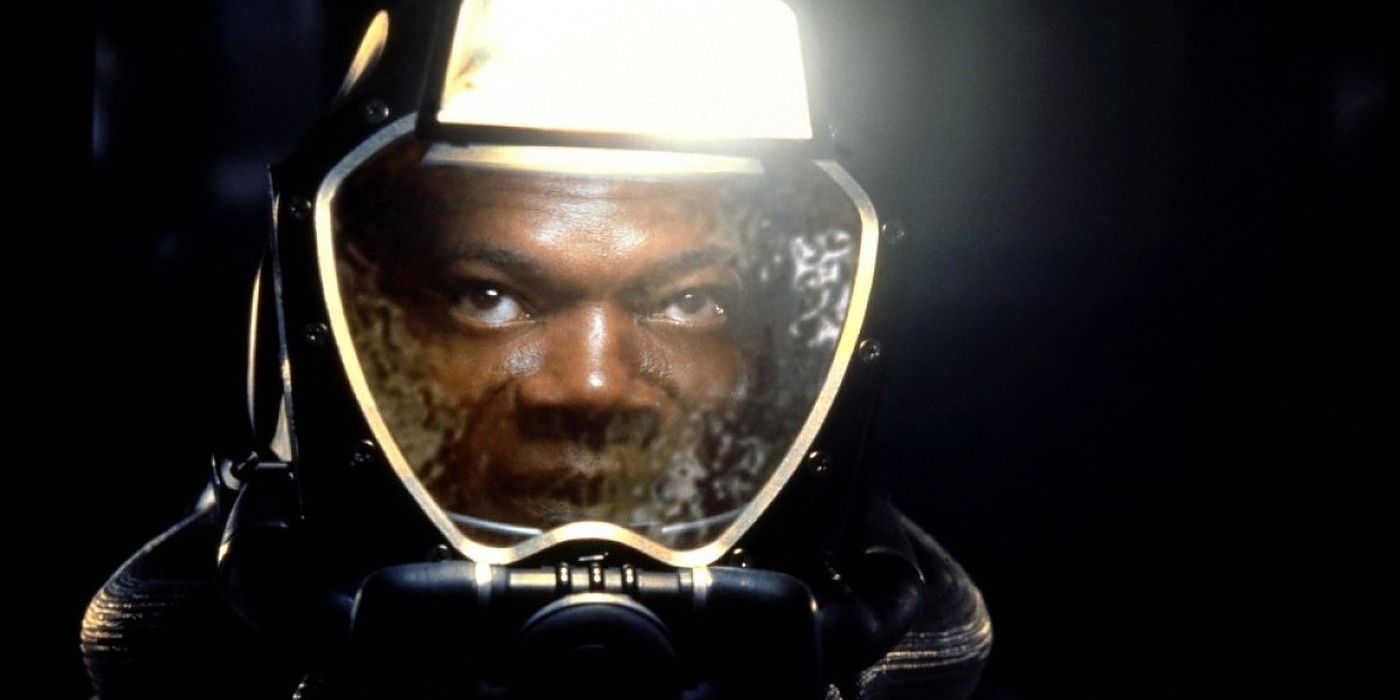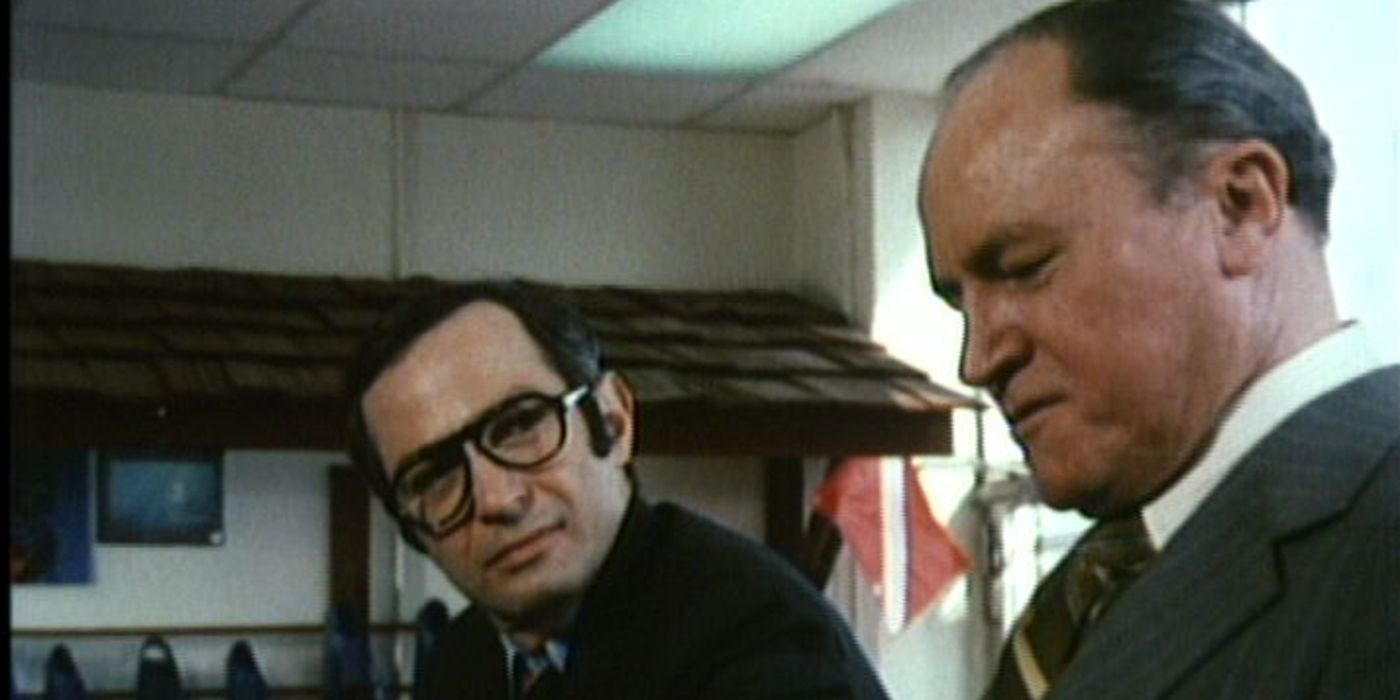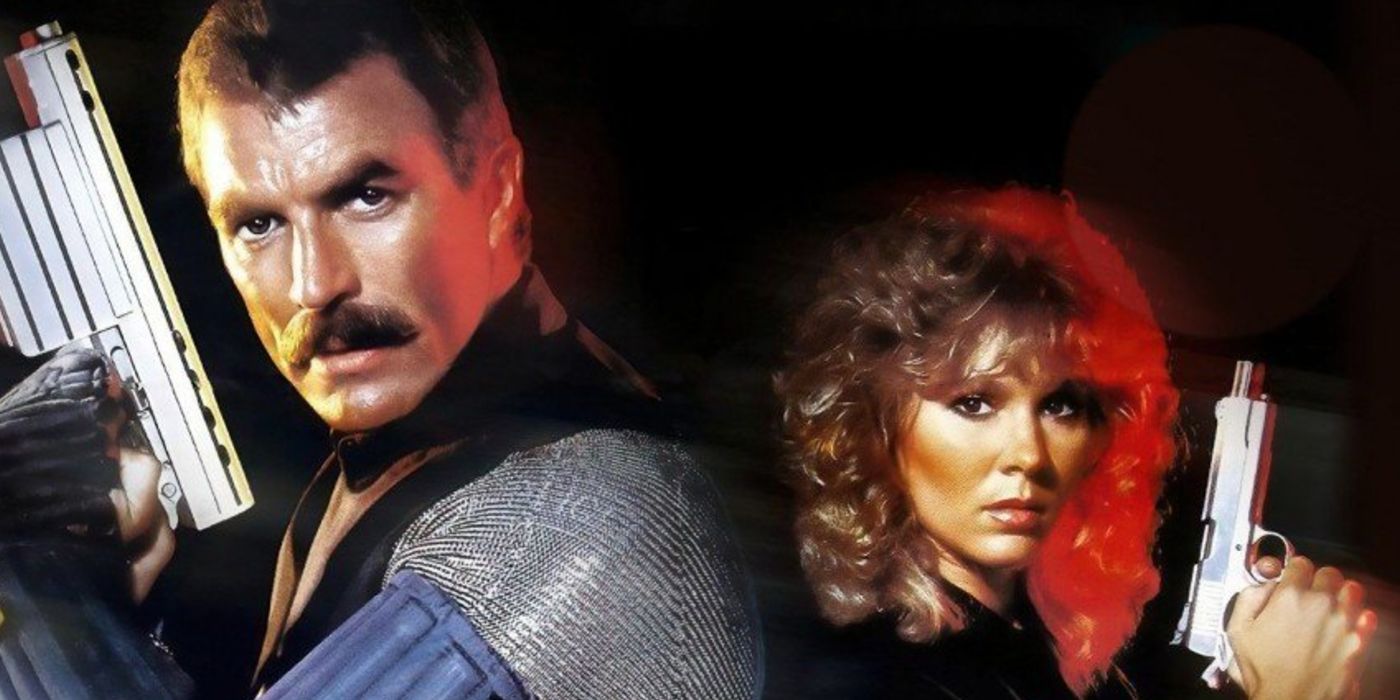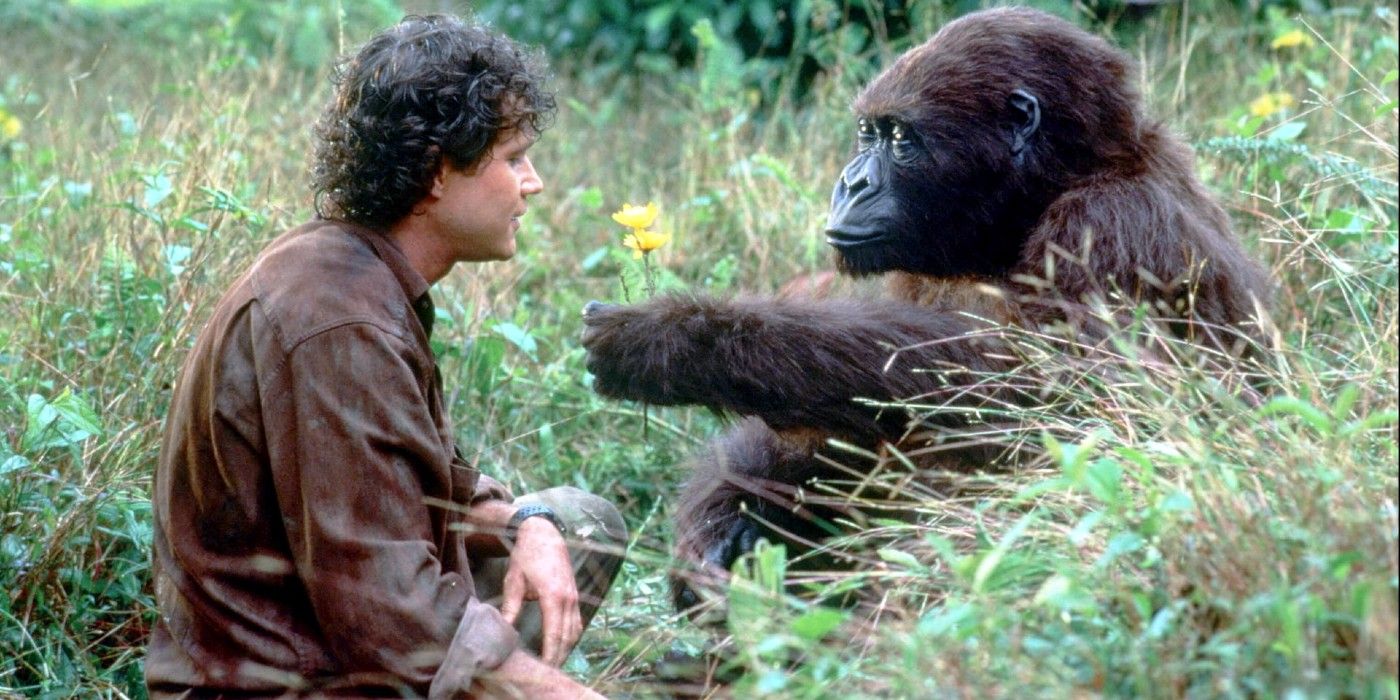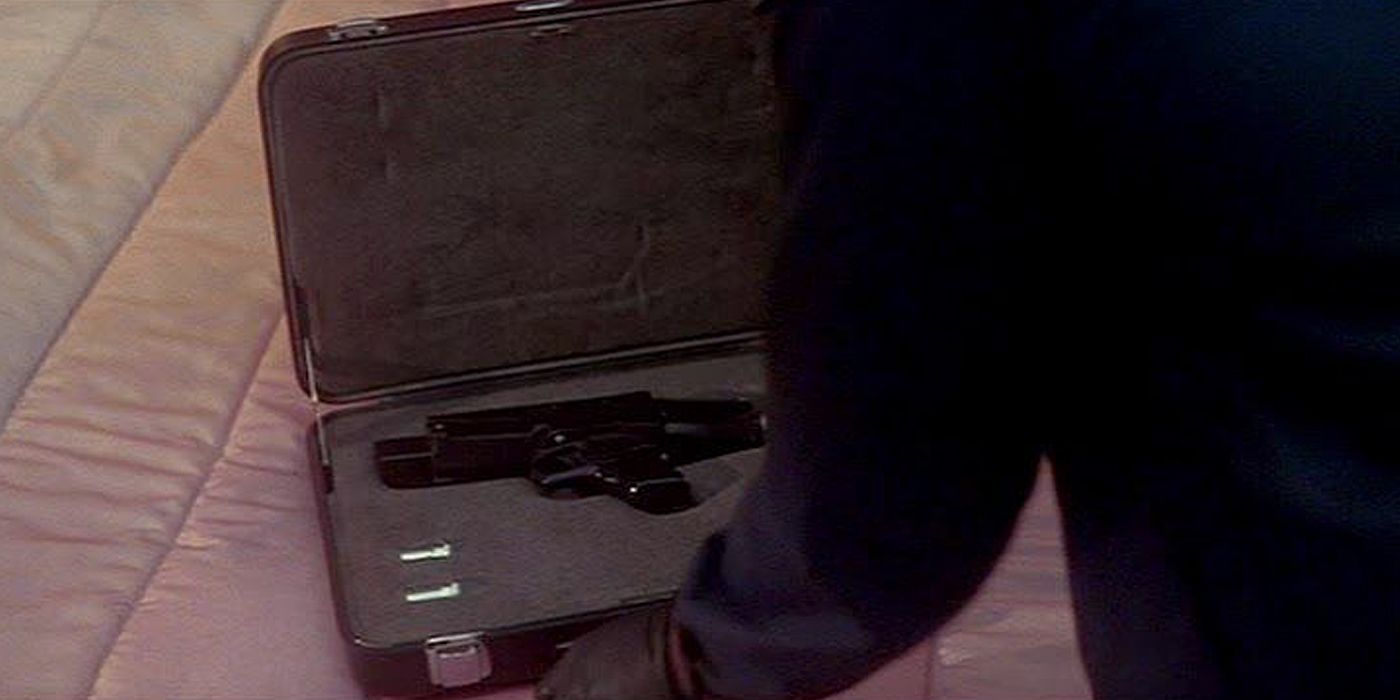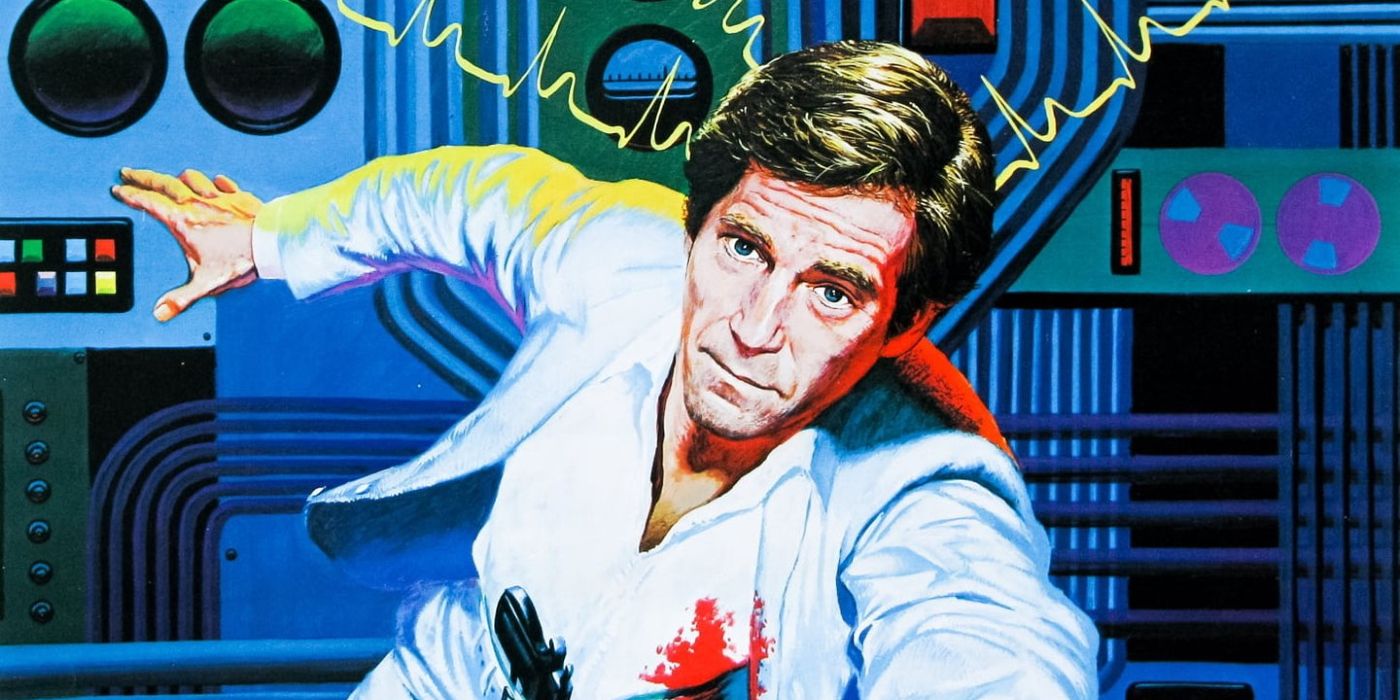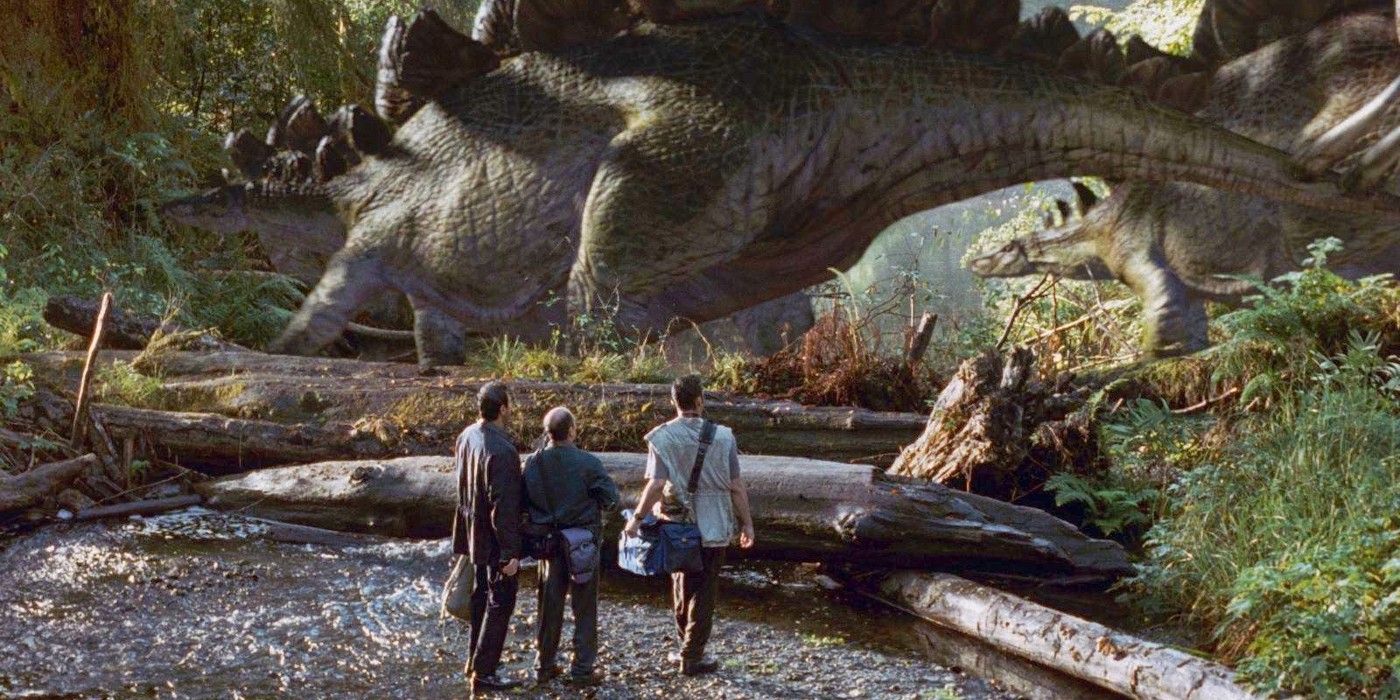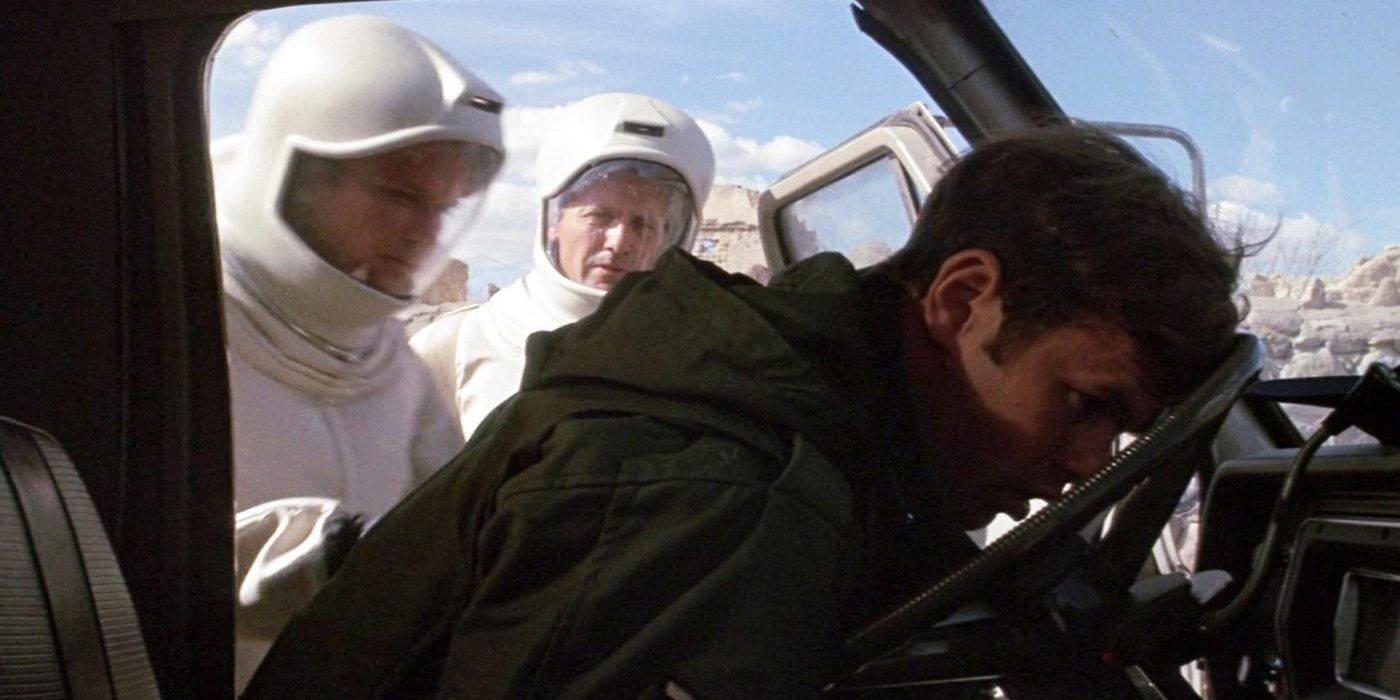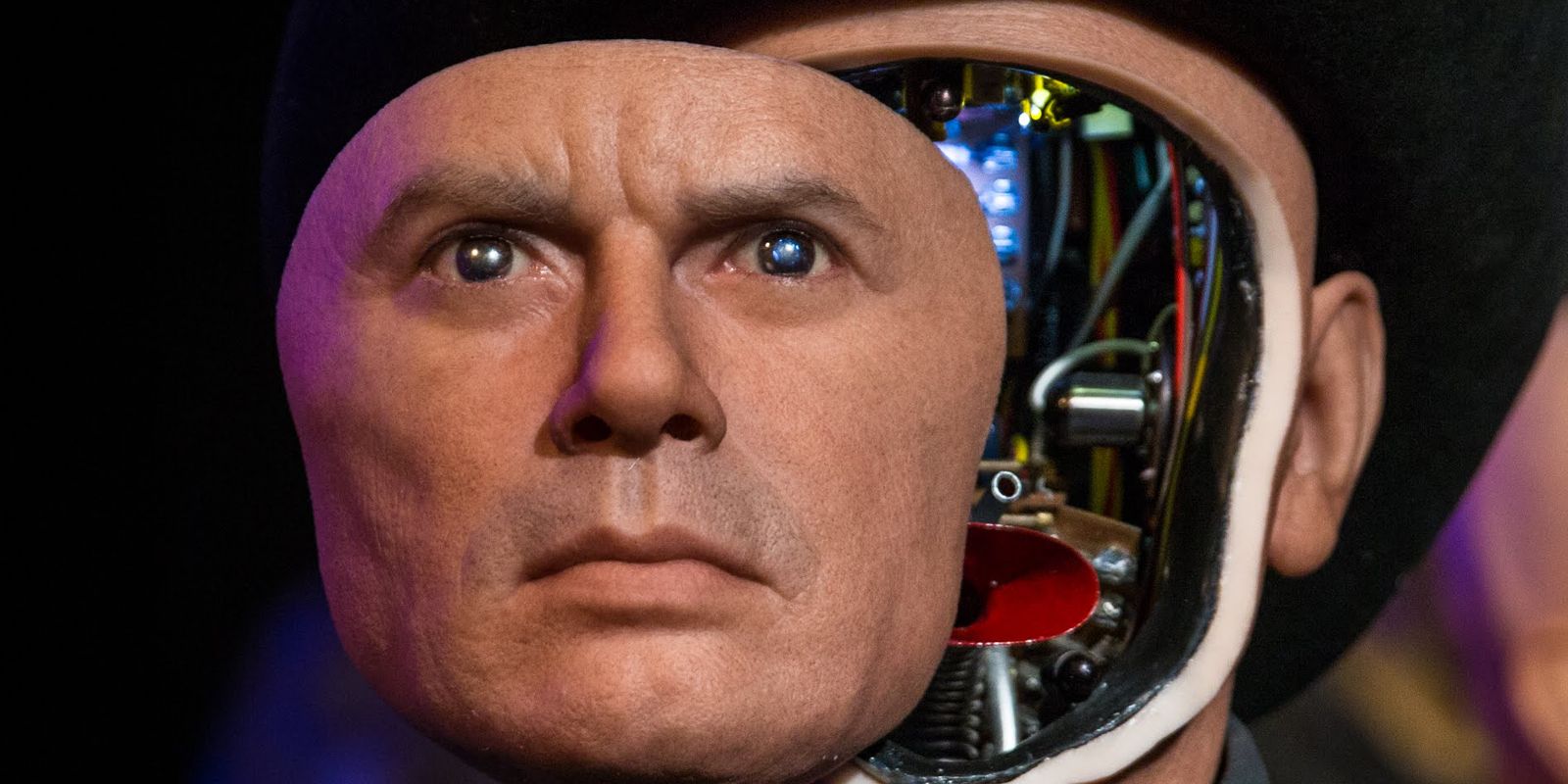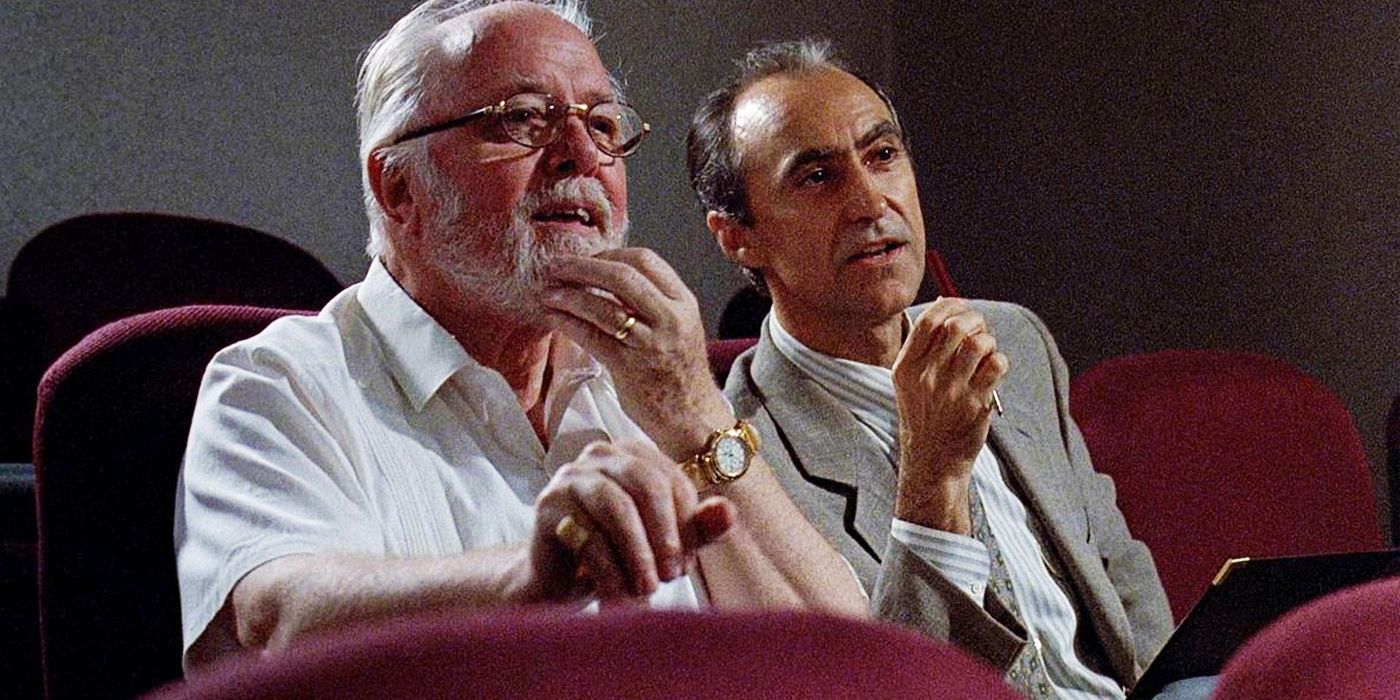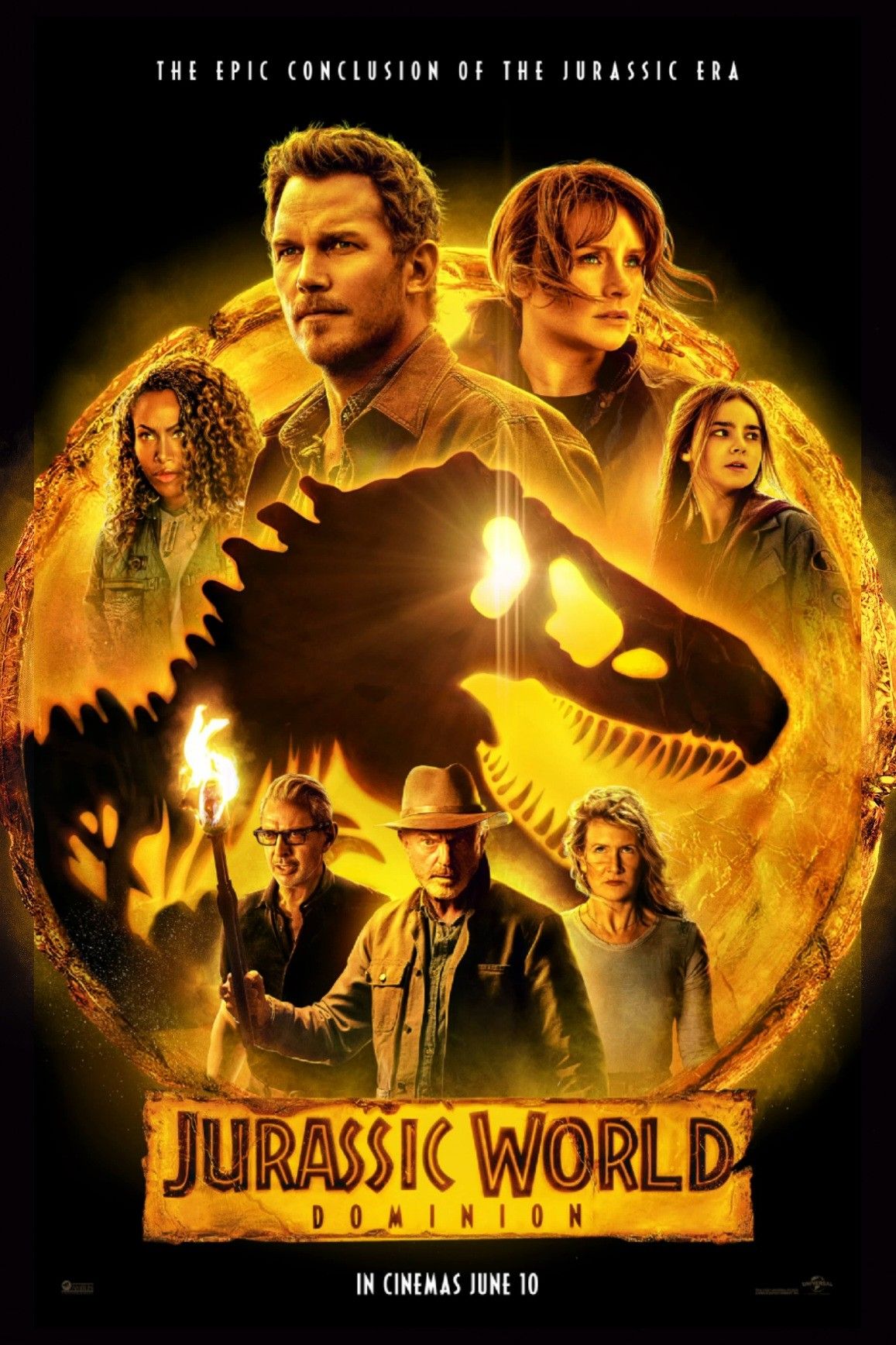Michael Crichton may have created both Jurassic Park and Westworld, but how do the sci-fi icon's movie adaptations rank in terms of quality? Most famous for creating not one but two iconic sci-fi franchises, Michael Crichton was a rare talent who combined pulse-pounding storytelling with well-etched characters and high concept premises. The recent revivals of Westworld and Jurassic Park prove that Crichton’s appeal as an author of sci-fi adventures endures even into the 2020s — both as a novelist whose work was adapted for film and as a director and screenwriter.
However, despite Crichton being a beloved figure in the world of genre fiction and film, some of the prolific author/screenwriter/director's more off-the-wall ideas had trouble with critics. Crichton received uneven reviews for his sci-fi output as an author and screenwriter, while some of his directorial efforts couldn't recapture the pacing of his writing. Whether adaptations or his directorial work, some Crichton movies were lauded as instant classics, like Spielberg’s smart blockbuster Jurassic Park, while others, such as Sphere, flopped with audiences and critics alike.
Some of Crichton’s ideas worked better on paper than onscreen, which may explain why frequently frustrated attempts to adapt his killer nano-bot novel Prey have lingered in development hell for almost two decades now. Other novels of Crichton’s are perfect for adaptation but were saddled with the wrong director, a bad cast, or just the wrong tone for the project. Whatever the case, Crichton’s screen output as director, screenwriter, and original author range from the passable to the superb, and it’s worth looking at every Michael Crichton sci-fi project to see what worked and what fell flat.
11. Timeline (2003)
The biggest financial failure in Crichton's screen adaptations, Timeline is also the weakest movie of the lot. Starring Paul Walker shortly after his Fast and Furious success, the time-travel thriller Timeline was the last big-budget project to come from blockbuster cinema legend Richard Donner. Unfortunately, the Midas touch that Donner brought to everything from Lethal Weapon to Superman to The Omen is absent from this misfire, which squanders a superb cast and a stellar premise on a convoluted thriller. Walker stars as an archaeology student who must travel back in time to medieval France to save his professor, and despite support from the likes of Gerard Butler, David Thewlis, Michael Sheen, and Billy Connolly, the star can’t wrangle much suspense from a film that most critics dismissed as a mess caught between contemporary sci-fi thrills and historical action.
10. Sphere (1998)
Wag the Dog director Barry Levinson may have scored a minor hit with his non-sci-fi Crichton adaptation Disclosure, but the director would have been wise to steer clear of Sphere. The adaptation stars Dustin Hoffman, Sharon Stone, and Samuel L. Jackson as a trio of scientific researchers brought to the Pacific Ocean floor to study a strange alien spacecraft that appears able to manipulate its environment based on the emotions of its observers. A potentially interesting premise is squandered in this lesser effort that lacks the gory impact of similar deep-sea horrors Deepstar Six and Leviathan, despite aiming ambitiously for the thoughtful, trippy themes of its most obvious influence, Terminator creator James Cameron’s The Abyss.
9. Pursuit (1972)
A lesser project of Crichton’s, Pursuit is notable mostly for being the director’s moviemaking debut. The first project Crichton directed himself, Pursuit is a made-for-TV movie based on Crichton's novel Binary. The predictable plot sees an extremist threaten to attack a political convention with nerve gas in a "city-held-hostage" story that viewers have since seen done better, such as in Speed to Die Hard With A Vengeance. Luckily, Pursuit is elevated above Sphere and Timeline by a stellar performance from cult actor Ben Gazzara, whose quirky charms make this a Crichton thriller worth checking out.
8. Runaway
Written and directed by Crichton, 1984's Runaway is the story of Tom Selleck's Blade Runner-esque cop hired to track down dangerous androids. While this thriller features an agreeably campy antagonist in KISS frontman Gene Simmons, Runaway struggles to emerge from Blade Runner's shadow in its simple story of Selleck's heroic cop taking down Simmons' sociopathic robotics engineer. Spirited supporting turns from Cynthia Rhodes and Kirstie Alley ensure that Runaway isn't Crichton's worst movie, but there's little to make the conventional chase thriller memorable.
7. Congo
Fatally boring, 1995’s jungle adventure Congo manages to make an expedition into unmapped territories from the creator of Jurassic Park feel uninspired. Boasting a talking gorilla pushes it above the earlier titles here, but this misfire from Arachnophobia director Frank Marshall nonetheless fails to recapture the corny thrills of pulp adventure serials. Laura Linney and Dylan Walsh play a pair of scientists who join a ragtag bunch of adventurers and mysterious financier to adventure into uncharted jungle terrains. However, the duo struggles to ground the silly material and is upstaged by the movie's sole saving grace, its stellar supporting cast of quirkier character actors including Tim Curry, Bruce Campbell, and original Ghostbusters star Ernie Hudson.
6. Looker
Written and directed by Crichton, 1981's surreal sci-fi satire Looker boasts the impressive accolade of being the earliest film to feature a 3D model of a human body created via CGI. However, the uneven-but-interesting thriller only uses this effect within the movie's reality, with the CGI human being seen on a plastic surgeon's computer screen rather than acting as a character in the movie. Said plastic surgeon is the protagonist of Looker, an amoral antihero played by Skyfall's Albert Finney, who is confused by models asking for minute alternations to their appearance. These odd requests lead him to uncover a research firm attempting to create the "perfect person" according to beauty standards in a satire that may be on-the-nose but also proves both prescient and witty if slow-paced.
5. The Terminal Man
With high-profile fans such as Terrence Malick and Full Metal Jacket director Stanley Kubrick, this cult gem is worth seeking out. The first big sci-fi project for Get Carter director Mike Hodges, this underrated and strange '70s sci-fi stars The Owl and The Pussycat leading man George Segal as a classic Crichton antihero, a scientist plagued by epilepsy who utilizes an experimental procedure in the hopes of solving his sickness. Naturally, this being a Crichton adaptation, the procedure works too well and as the hero develops strange, computer-controlling super-intelligence, the movie becomes a more thoughtful, less sensational (and gory) spin on themes otherwise explored by Hollow Man and Cronenberg’s The Fly remake. It's not perfect, but this rough-around-the-edges oddity touches on similar themes to Altered States and Segal's alternately scared, elated, and psychotic leading role is a memorable turn.
4. The Lost World: Jurassic Park
The first sequel to Jurassic Park, The Lost World saw legendary blockbuster helmer Steven Spielberg return to the director’s chair for the follow-up, something he avoided throughout his career until that point. Unfortunately, the sequel is less impressive than its predecessor: the tale of Dr. Ian Malcolm, his daughter, and Julianne Moore's wide-eyed idealist returning to Site B alongside a few amoral opportunists has a less likable cast and lower stakes (now that everyone knows the dinosaurs are roaming free, the deaths of poachers aren't as moving as the first film's tense sequences). However, despite a few corny moments, it’s hard to dislike a movie that features a suburban-set scene of a T-Rex rampaging after eating an entire ship's crew.
3.The Andromeda Strain
Released in 1971, The Andromeda Strain sees The Haunting director Robert Wise take on Crichton’s story of scientists attempting to contain the titular alien pathogen before it causes a killer pandemic. Although admittedly uneven and scorned by some critics, this grim thriller is still poignant and deserves its place in this ranking for featuring what the Infectious Diseases Society of America called the most accurate and significant fictional depiction of pandemic control and eradication in mainstream movie history. It's a hard and often sad film, but The Andromeda Strain is also prescient and chilling like the best of Crichton's sci-fi.
2. Westworld
Recently remade for television, Westworld follows a group of tourists who fear for their life after arriving in a theme park where the main attractions go lethally haywire. It may be almost the same premise as Jurassic Park, but here the dangerous attractions are humanoid robots that rebel against their human masters (in the TV series it's a choice — but in the original movie, it's the result of a technical malfunction). There’s no denying how effectively simple the premise is, which may be why Westworld was written as a movie by Crichton instead of as a novel. An iconic villainous turn from Yul Brynner alongside a plot that questions how human characters interact with technology even before it turns on them turns Westworld from a potentially cheesy thriller into an intense, smart sci-fi thrill ride and one of the earliest '70s sci-fi movies to take an influentially critical look at emerging entertainment technologies.
1. Jurassic Park
The most financially successful and critically beloved Crichton adaptation, Spielberg's 1993 blockbuster fuses deft character work with still-staggering special effects to create sci-fi adventure perfection. With elements of horror, comedy, and even some subtle satire (although it's nowhere near as prominent as Crichton's source novel), Jurassic Park remains a rare blockbuster beloved by audiences and critics alike, and the movie's enduring popularity is evidenced in the excitement surrounding upcoming follow-up Jurassic World: Dominion. The tale of an eccentric billionaire who revives dinosaurs on a remote island to create the theme park of dreams (or nightmares) may often be cloned, but the original Spielberg/Crichton team-up has yet to be bested.

